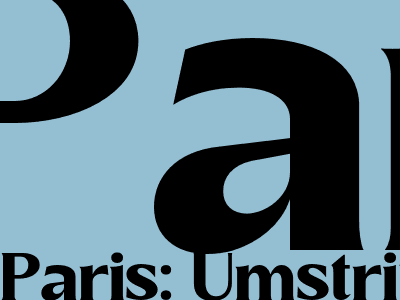
Paris: Controversial Israel Event Sparks Protests
Protesters and supporters clash over "Israel Apartheid Week"
Tensions ran high in Paris as an event highlighting the alleged apartheid practices of Israel sparked protests and counter-protests.
The event, dubbed "Israel Apartheid Week," aimed to raise awareness about the treatment of Palestinians in the Israeli-occupied territories. However, it drew fierce opposition from pro-Israel groups, who accused organizers of promoting anti-Semitism.
Tensions escalated on the streets of Paris as protesters on both sides clashed, with police intervening to maintain order. Several arrests were made.
In-depth Analysis of the Event and Reactions
Understanding the Roots of the Protests
The protests were fueled by a long-standing conflict between Israel and Palestine, with each side accusing the other of human rights violations. Supporters of "Israel Apartheid Week" argue that Israel's policies towards Palestinians constitute apartheid, a system of racial segregation and discrimination.
Pro-Israel groups, on the other hand, reject the accusations of apartheid and condemn the event as an attempt to delegitimize Israel's existence. They argue that the event perpetuates anti-Semitic tropes and undermines efforts towards peaceful dialogue.
Impact on the Paris Community
The protests and counter-protests had a notable impact on the Paris community. Many businesses in the affected area closed early, and residents were advised to avoid certain streets.
The event also sparked a heated debate on social media, with people expressing strong opinions on both sides. Some condemned the protests as divisive, while others defended the right to freedom of speech and the importance of raising awareness about human rights issues.
International Reactions and Diplomatic Implications
The event in Paris drew international attention and sparked reactions from various governments and organizations. The United States expressed concern about the anti-Semitic rhetoric associated with the protests, while the European Union called for respectful dialogue and a focus on peaceful solutions.
The protests also raised questions about the growing movement to boycott, divest from, and sanction Israel (BDS), which aims to pressure Israel to change its policies towards Palestinians. Some countries and organizations have adopted BDS measures, while others have criticized it as counterproductive.
Conclusion: Ongoing Tensions and the Path Forward
The protests in Paris highlight the ongoing tensions between supporters of Israel and those who criticize its policies towards Palestinians. The event sparked a heated debate about apartheid, anti-Semitism, and the best path to achieve peace in the region.
While the protests in Paris have subsided, the underlying issues that fueled them remain unresolved. Dialogue, diplomacy, and a commitment to human rights will be crucial in finding a peaceful and just solution for all parties involved.